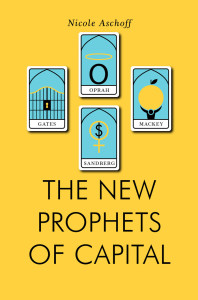Link to an article by Barbara Ehrenreich:
Tag: Economics
Linda Gordon – The Programs of Neoliberal Feminism
Link to an article by Linda Gordon:
Andrew Gavin Marshall – Bank Crimes Pay
Link to an article by Andrew Gavin Marshall:
“Bank Crimes Pay: Under the Thumb of the Global Financial Mafiocracy”
Chris Gilbert – “Why Socialism?” Revisited
Link to an article by Chris Gilbert:
“‘Why Socialism?’ Revisited: Reflections Inspired by Albert Einstein”
A very interesting essay, in line with late-period writings by Walter Benjamin, though what goes unsaid is that much of Einstein‘s views on this point were probably drawn from Thorstein Veblen. Who would have thought sci-fi movies would be so relevant?
Bonus links: “Inside Einstein’s Mind” and “You Only Live Twice”
James H. Nolt – The Ideological Bedrock of Economics
Link to an article by James H. Nolt:
Les Leopold – Why Does America Have More Prisoners Than Any Police State?
Link to an article by Les Leopold:
“Why Does America Have More Prisoners Than Any Police State?”
Stephanie McMillan & Vincent Kelley – The Useful Altruists
Link to an article by Stephanie McMillan & Vincent Kelley:
“The Useful Altruists: How NGOs Serve Capitalism and Imperialism”
Fuck a Wage, Take Over the Business: A How-to With Richard Wolff
Link to an interview with Richard Wolff by Andrew Smolski:
“Fuck a Wage, Take Over the Business: A How-to With Richard Wolff”
Bonus link: “Why Co-ops and Community Farms Can’t Close the Racial Wealth Gap”
Michael Hudson – The Paradox of Financialized Industrialization
Link to a transcript of a speech by Michael Hudson:
Nicole Aschoff – The New Prophets of Capital
Nicole Aschoff – The New Prophets of Capital (Verso 2015)
Nicole Aschoff has written a slender volume critiquing the programs of four modern “prophets of capital”: Sheryl Sandberg (on boardroom feminism), John Mackey (on conscious capitalism), Oprah Winfrey (on self-empowerment), Bill & Melinda Gates (on charity). She adopts a journalistic tone, focusing on the “stories” told by the prophets of capital, and the sustaining narratives merely implied (or disavowed) by them. She finds a common thread of support of capital over labor throughout, and sustained support for inequalities and hierarchies of power against egalitarian impulses. These “prophets” present what appear to be corrections to the contradictions of capitalism, only to reinforce and reproduce the imposition of markets into more and more spheres of life. The chapters profiling each prophet generally begin with a statement of what the prophets put forward to the public as the benefit they provide, followed by a critique that renders problematic the unstated assumptions and necessary preconditions. The summaries of what the prophets preach are generally fair. As to the critiques, there are no new arguments here. Yet the critiques in the book work because Aschoff is well versed in theory, and she has done her research on all the standard left takedowns of these prophets of capital. Luc Boltanski and Eve Chiapello are credited in influencing the book. Slavoj Žižek, Pierre Bourdieu, and C. Wright Mills also loom large in structuring the analysis, even though each is only mentioned in passing. If this has a flaw, it is sloppy editing (“Thomas Picketty” rather than Thomas Piketty, etc.). Still, this is a welcome restatement of left positions, filling the near-vacuum of accessible, readable books from the political left. Lee Drutman has argued that the solution to the problem of lobbying in politics is — paradoxically — more lobbying. In a similar way the solution to the way mainstream media frequently resembles a right-wing echo chamber may be to have a bit more of a left-wing echo chamber for balance, and The New Prophets of Capital serves in that role admirably.

